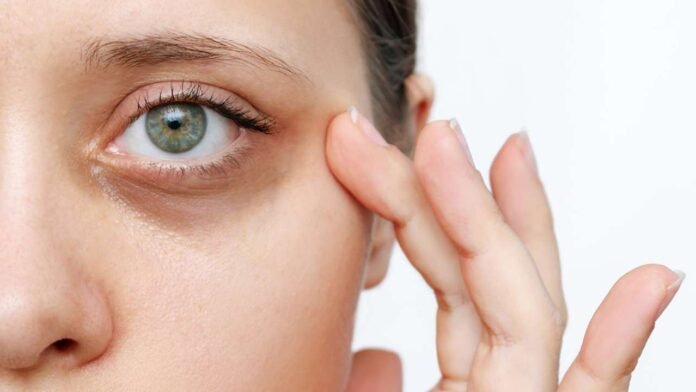Dark circles under the eyes are often dismissed as mere signs of fatigue or aging, but they can be indicators of underlying health issues or lifestyle choices that deserve attention. Dr. Gunasekar Vuppalapati, senior reconstructive and aesthetic plastic surgeon at GVG Invivo Hospitals, emphasizes that these circles are a common concern linked to various health and lifestyle factors. Understanding these root causes is crucial for developing effective strategies to reduce their appearance.
One significant contributor to dark circles is allergies. Dr. Vuppalapati explains that allergic reactions trigger the release of histamine, which can cause blood vessels to dilate. The thin skin around the eyes makes these dilated blood vessels more visible, resulting in dark circles. Inflammation from allergies and frequent rubbing of the eyes further exacerbate this condition, intensifying the appearance of dark circles.Another common cause is genetics. Some individuals inherit genes that predispose them to having thinner skin under the eyes or more prominent blood vessels. This genetic predisposition can contribute to the development of persistent dark circles that are challenging to alleviate without targeted treatments.Dehydration is also a significant factor. When the body lacks sufficient hydration, the delicate skin under the eyes can appear sunken and hollow. This effect casts shadows that manifest as dark circles. Ensuring adequate water intake throughout the day can help maintain skin elasticity and reduce the prominence of under eye dark circles caused by dehydration.Furthermore, lifestyle factors such as excessive sun exposure and smoking can accelerate skin aging and contribute to the appearance of dark circles. Sun damage leads to collagen breakdown and skin thinning, making blood vessels more visible. Smoking, on the other hand, restricts blood flow and oxygen delivery to the skin, exacerbating under eye discoloration.Dr. Vuppalapati advises individuals concerned about persistent dark circles to consult with a healthcare professional. A comprehensive evaluation can identify underlying health conditions such as anemia or thyroid dysfunction, which may also contribute to the appearance of dark circles. Addressing these underlying issues through appropriate medical interventions or lifestyle adjustments can help reduce dark circles and improve overall skin health.
In addition to allergies, genetics, dehydration, and lifestyle factors, there are several other potential causes of under eye dark circles that individuals should be aware of. Chronic conditions such as eczema or dermatitis can lead to skin inflammation and discoloration around the eyes, exacerbating the appearance of dark circles. Managing these conditions with appropriate skincare routines and medical treatments can help alleviate symptoms and reduce dark circles over time.
Iron deficiency anemia is another common health issue linked to under eye dark circles. Insufficient iron levels in the body can result in decreased oxygenation of tissues, including the delicate skin under the eyes. This can cause the skin to appear pale or bluish, making dark circles more noticeable. Addressing anemia through dietary changes or iron supplementation prescribed by a healthcare provider can help improve skin tone and reduce dark circles.
Fatigue and poor sleep quality remain prevalent factors contributing to under eye dark circles. Lack of adequate sleep disrupts the body’s natural healing and rejuvenation processes, leading to puffiness and darkening of the under eye area. Establishing a consistent sleep schedule and practicing good sleep hygiene, such as avoiding screen time before bed and creating a relaxing bedtime routine, can significantly improve sleep quality and reduce the appearance of dark circles.
Moreover, hormonal changes, particularly in women, can also play a role in the development of dark circles. Fluctuations in estrogen and progesterone levels, such as during menstruation or pregnancy, can cause fluid retention and blood vessel dilation, contributing to under eye discoloration. Managing hormonal imbalances through lifestyle adjustments or medical interventions prescribed by a healthcare professional can help mitigate these effects.
Effective management of under eye dark circles often requires a multifaceted approach that addresses both underlying health conditions and lifestyle factors. Cosmetic treatments such as topical creams containing ingredients like vitamin C or retinol, or procedures like chemical peels or laser therapy, may also be recommended by dermatologists to improve skin texture and reduce pigmentation under the eyes.

